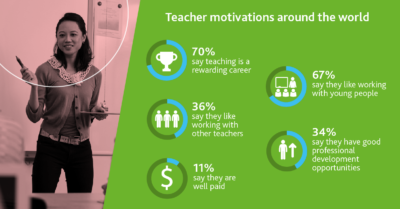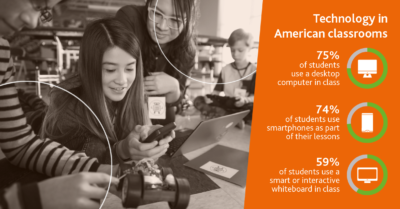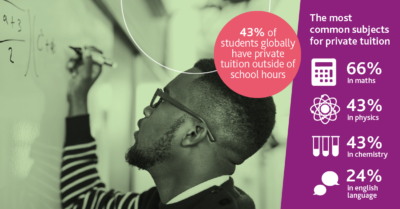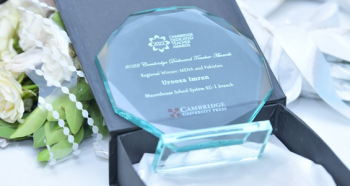We are living in a world of unprecedented change, where the shape of the future is increasingly hard to define. This rapid pace of societal transformation is raising new questions for governments and education providers.
What skills and knowledge do young people have and need in the 21st century? Are their classrooms preparing them for the world of work? How are schools embracing technology?
And in a world where competition for the best university places is global, how much should students prioritise the activities they pursue outside of school?
Finding answers to these questions is not simple. At Cambridge International, we wanted to understand exactly what education is like across the world today, so that we can be ready to meet the changing needs of students, parents and teachers tomorrow.
We wanted to understand not only what students learn, but how, and in what context. We wanted to explore what motivates teachers and how they view their role.

That is why we decided to launch the first ever Global Education Census – a worldwide survey that gathers the voices of nearly 20,000 students and teachers. This ground-breaking report provides a snapshot into their lives, both inside and outside the classroom.
The report looks at topics as diverse as how technology is used in the classroom to teacher demographics. From students’ favourite subjects, to their career aspirations.
The research shines a light on the building blocks that currently make up the educational experience for students and teachers across the world.
The report focuses on ten countries – Argentina, China, India, Indonesia, Malaysia, Pakistan, Saudi Arabia, South Africa, Spain and the USA – and presents findings in five key areas of education – in the classroom, outside the classroom, the teacher’s role, measuring success and supporting students.

The findings provide a range of fascinating statistics, while also highlighting surprising similarities and differences between countries. The structure of the school day, prevalence of homework and subjects studied were consistent across all the countries surveyed.
On the other hand, there were stark differences in how schools and students use technology both inside and outside the classroom, and in how extra-curricular activities are viewed, particularly the use of private tuition.
The findings also provide interesting food for thought and for further research. For instance, has the demand for private tuition reached its peak or will it continue? How does this tuition impact students’ ability to learn independently? How will schools continue to manage the technology revolution and help learners to become digitally literate? How can education providers prepare students for evolving careers?

At Cambridge International, we help young people become confident, responsible, reflective, innovative and engaged – ready to tackle the demands of tomorrow’s world. With the findings from this global survey, we hope to widen the debate as to how today’s education can help students be ready to shape a better world for the future.
To download a copy, please click here





